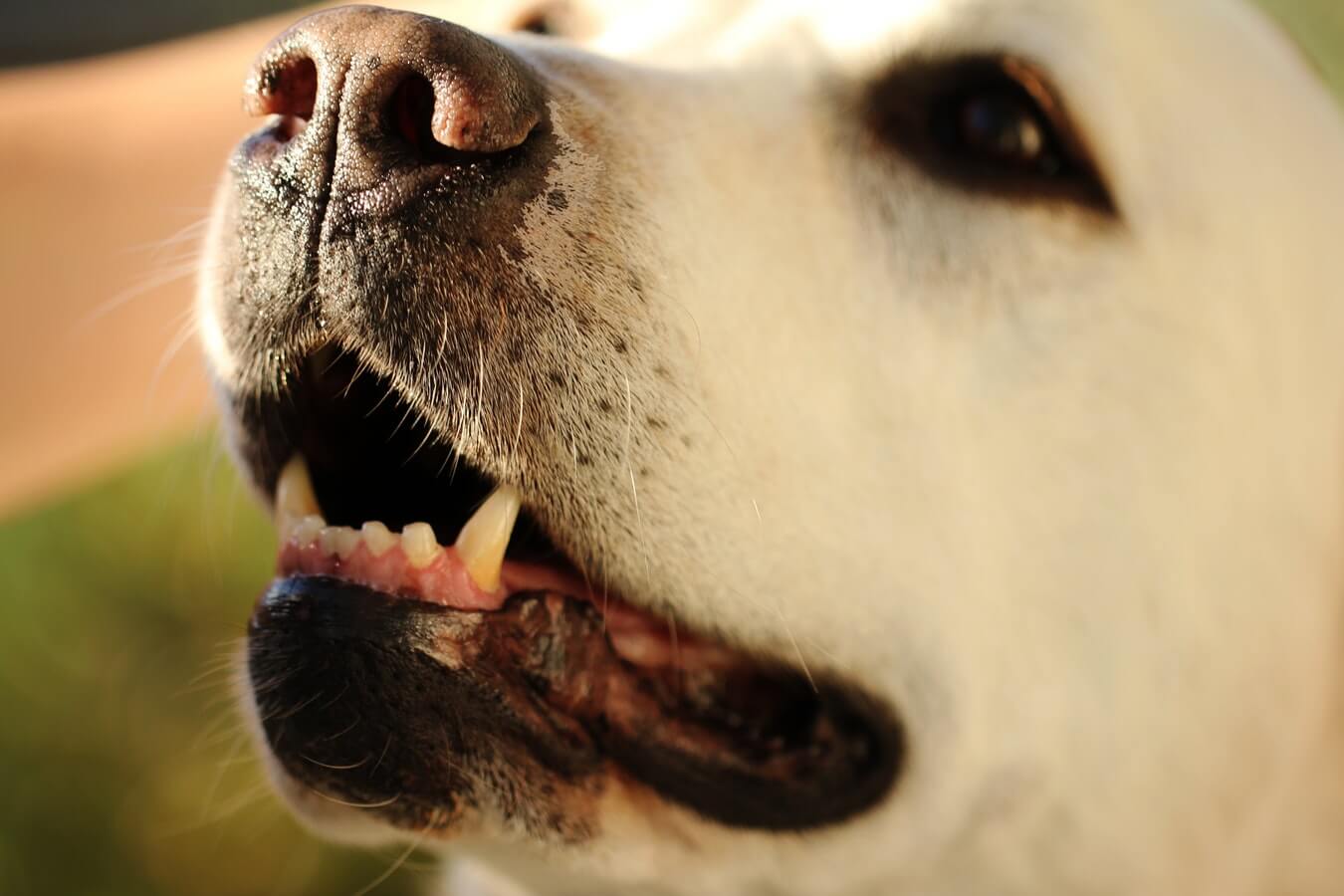
Dogs are considered the most domesticated and emotionally connected animals to humans since they develop relationships similar to the human parent-child relationship. The foundation of this affection starts typically in the neonatal stage (0 to 2 weeks), where baby puppies are most vulnerable. Similar to a human baby, puppies are devoid of specific structures and capabilities, a cause for curiosity. One of the critical fragility features that many canine owners notice the puppy dental cavity and structure. This always gets many to ask the curious question, are dogs born with teeth?
Table of Contents
Are Puppies Born With Teeth?
No, they are not! Any sign of a dental formula will only begin to materialize in the 3rd week of the puppy’s birth.
This is no surprise because at two weeks old, your puppy is virtually blind too and most senses are inactive. At about 3 weeks old, they also begin to hear as small teeth start to appear. Let’s first get acquainted with some basics of canine dentistry as we learn more about puppies.
The Canine Dental Anatomy
According to dental anatomy books, dogs have 42 permanent teeth through some breeds have extra supernumerary teeth while others are missing some. Scientifically examining teeth is one of the most efficient ways to determine the approximate age of a dog. Focusing on the degree of tooth growth can be used to estimate dog age with reasonable accuracy.
Puppies develop deciduous milk teeth in less than 4 Weeks. The first to arrive are the front incisors, which are 6, both top and bottom. They are closely followed by the canines which are 2 both up and down, and last in the eruption chain, the premolars. These premolars are also 6 bottom and 6 top. Do note that, puppies don’t have molars, only adults do.
The entire teething process is quite rapid, and by the time the puppy reaches 6 months, all 42 adult teeth should have erupted. Remember as your puppy matures, its milk teeth shed off and are replaced by adult teeth. The milk teeth are lost in the same order in which they appeared, similar to adult teeth. So adult teeth also appear in a format and order similar to puppies, till the molar stage. By the 12th -16th Week, they’ll be fully teething, and their sore gums will lead them to bite and chew on anything.
Growth Stages
To better understand this dental marvel, it is better we know the growth stages of your canine.
A newly born puppy is immature and initially blind and deaf when conceived by its mother.
It’s unable to make any clear movements except crawling. At this critical stage, it needs warmth and milk from its mother primarily, but we’ll get to that soon. Touch and taste senses will be active at birth, but not teeth. The neonatal puppy period becomes the transitional period.
Though newborns vary in size depending on breed, a rate of puppy development also varies in different breeds. Breed aside, all puppies are born entirely dependent on their mothers. In addition to being born blind, deaf and toothless, they are also unable to regulate their body temperature. Infant dogs depend on their moms to conserve their body temperature and even defecate. Otherwise, they can quickly die from hypothermia, which is a low body temperature condition.
Temporary Teeth
So in the early stage, after the first 3 weeks, puppies acquire temporary teeth, referred to as milk teeth at times. Typically, when these teeth appear, the puppy can now take in more solid food. These baby puppy teeth eventually start falling out in the 4th month of its life.
In canine dental anatomy, these milk teeth fall out easily to make room for permanent teeth. It should not worry you as puppies actually swallow and excrete them naturally without any effects.
Loss of Temporary Teeth
A puppy milk tooth falling out is a food thing. Rather, at times pushed out by the eventual eruption of the adult teeth. The milk teeth are lost in the order in which they appeared similar to adult teeth. First the incisors, then canines, and finally premolars. It starts with the emergence of adult incisors between 3 -5 months. Canines appear between 4-6 months and lastly premolars which emerge 4-5 months. Between 5 to 7 months, we fully see the molars emerge.
Unfortunately, if a milk tooth hasn’t yet fallen out when an adult tooth erupts, it can cause malocclusion. This means that the adult tooth will be out of position. Preventing it from erupting in a normal position can cause serious long-term consequences. This can lead to trauma to other teeth and soft tissues, which can later lead to chronic pain and inflammation. Rare at times as it’s related to genetics, a tooth failing to undergo normal resorption isn’t good for your dog.
Puppy Feeding
Feeding without teeth can be tough during the neonatal stage (0-2weeks)! So how do puppies do this? In addition to sleeping 90% of the time, feeding is by ordinary means natural! That’s why their mothers are super important as they feed majorly on milk called colostrum. This is rich in antibodies and provides passive immunity for disease protection. Motherly female dog nipples are so imperative here.
Mothers are irreplaceable as newborns aren’t able to fully support their weight and even crawl.
Bitches also will teach them basic ‘manners’ and wean them. Puppies can later drink and eat from a bowl by 4 weeks. When its milk teeth appear, it can now take in more solid food.
Chewing Habits
When teeth mature to a more mature stage (6 weeks), your puppy will become chewy. During the teething process, the puppy may be reluctant, drool, or may be irritable due to a tender mouth. The urge to chew when they are teething will be evident. Don’t allow it to chew anything harder than its own teeth like bones as the teeth can break.
It will most likely start puppy play-fighting and biting to develop a soft mouth as an adult.
Be sure also to teach your puppy to inhibit the force of its bites. This will teach him not to hurt you and not to exert any excessive pressure at all when biting. Chewing in puppies can also occur due to boredom or stress and even curiosity. You can make it a point to give your dog lots of safe chew toys that help alleviate boredom.
Puppy Dental Care
You can start paying attention to dental care when your puppy is very young. This will help them get accustomed to brushed teeth early. Dogs primarily hate brushing so this habit will help curb the main risk of infection by bacteria calcifying on the teeth. This can help prevent dental disease is common in dogs which can lead to bad breath, bleeding gums and difficulty eating.
Considering treats, chew toys and rawhide chews, and specially formulated foods can help keep your dog’s teeth clean. These chew toys and foods can have a mild abrasive action to help wipe away the thin layers of protein that do build upon canine teeth. However, this should all be done to complement brushing your dog’s teeth.
You May Also Interested In:
- 10 Best Dog Toothpastes Reviews and Buyer Guide
- 10 Best Puppy Foods for Small Breed Reviews and Guide
- Are Dogs Carnivores Or Omnivores?
Share this:
- Click to share on Twitter (Opens in new window)
- Click to share on Facebook (Opens in new window)
- Click to share on Tumblr (Opens in new window)
- Click to share on Pinterest (Opens in new window)
- Click to share on Reddit (Opens in new window)
- Click to share on Telegram (Opens in new window)
- Click to share on WhatsApp (Opens in new window)
- Click to print (Opens in new window)
